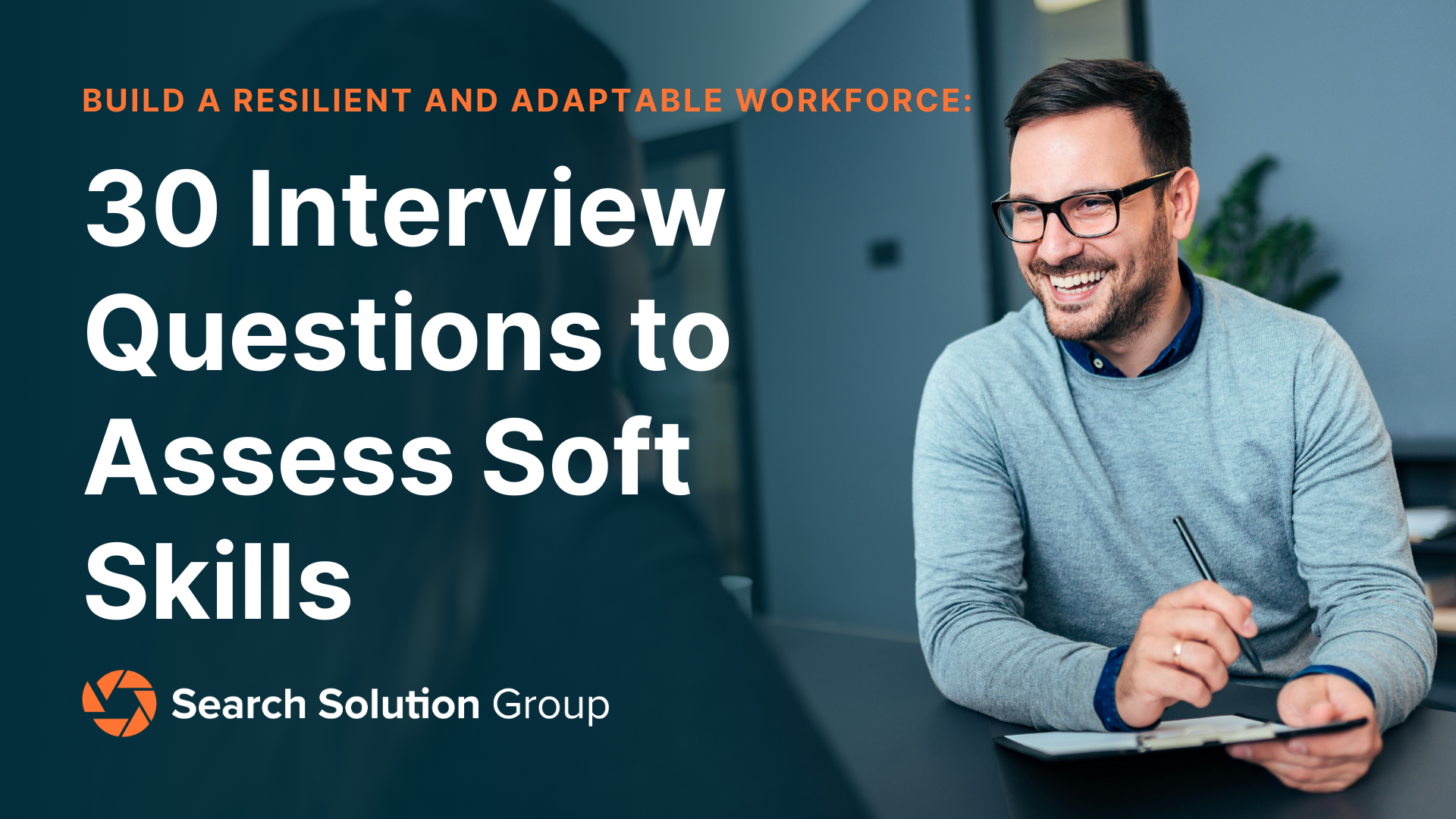In the evolving landscape of the modern workplace, the emphasis on soft skills alongside technical abilities has never been more pronounced. But what exactly are soft skills, and why do they hold such significance?
Understanding Soft Skills
Soft skills, broadly speaking, are the personal attributes, personality traits, inherent social cues, and communication abilities needed for success on the job. They include, but are not limited to, skills like empathy, adaptability, teamwork, problem-solving, and leadership. Unlike hard skills—which are about a person’s ability to perform specific tasks and are often acquired through education or training—soft skills are more about the way they perform those tasks, how they interact with others, and how they fit into the workplace. Together, soft skills and hard skills are crucial factors that significantly influence the hiring of your next employee.
The Importance of Soft Skills
In an era marked by the rise of automation and artificial intelligence, the unique human elements of the workplace are becoming increasingly indispensable. Soft skills such as the ability to adapt, communicate effectively, and empathize with others stand at the forefront of this shift, serving as the bedrock for human connections, problem-solving, and fostering an environment ripe for creativity and innovation. These qualities, which machines cannot replicate, are crucial for effective team collaboration and leadership, especially as the workplace evolves. For hiring managers, weaving assessments of these soft skills into the interview process is not just about predicting how candidates will interact with others or navigate challenges; it’s about pinpointing individuals who will enrich the company’s culture and objectives, contributing to a resilient and adaptable workforce. The forthcoming questions, detailed with insights into the importance of each soft skill, offer a roadmap for hiring managers to identify talent poised to thrive and positively impact the organization.
1. Communication Interview Questions
Communication is the foundation of effective teamwork and leadership. It involves the ability to clearly convey ideas, instructions, and feedback in a way that others can understand. As a hiring manager, assessing a candidate’s communication skills is crucial because it directly impacts their ability to work well with others, manage projects, and resolve conflicts.
- Have you ever had to convince a team to work on a project they were not enthusiastic about? How did you manage that?
- For quick internal communications, do you prefer a call, email, or a company communication platform (ex. Microsoft Teams, Slack, etc.) message? Why?
- Can you describe a situation where effective communication helped you handle a difficult task or project?
2. Leadership Interview Questions
Leadership is about inspiring and guiding others towards achieving common goals. It requires vision, motivation, and the ability to make decisions under pressure. Evaluating leadership skills in candidates is important for identifying potential team leads and managers who can drive your team to success.
- Can you describe a time when you led a project from inception to completion? What was your role and approach?
- How do you handle team members who disagree with your decisions or direction?
- What do you believe is the most challenging aspect of leadership?
3. Teamwork Interview Questions
Teamwork is the ability to work effectively within a group to achieve shared objectives. It involves collaboration, respect for others’ ideas, and the ability to compromise. Assessing a candidate’s teamwork skills helps ensure they can integrate into your team, contributing to a cohesive and productive work environment.
- How do you handle conflicts within a team? Provide an example from your past.
- If you had to build a team to work with, what are some of the characteristics you would look for in those team members?
- What do you do if you notice a teammate is overwhelmed or struggling with their workload?
4. Problem-solving Interview Questions
Problem-solving skills enable individuals to identify issues and develop effective solutions. This competency is critical in navigating workplace challenges and driving innovation. In interviews, understanding how a candidate approaches problem-solving can reveal their analytical abilities and creativity.
- Describe a situation where you identified a problem others had overlooked. How did you resolve it?
- How should a problem be brought up in the workplace? How should this problem be managed?
- Describe a situation where you identified a potential problem and resolved it before it became a bigger issue.
5. Adaptability Interview Questions
Adaptability is the capacity to adjust to new conditions, challenges, and opportunities. It’s vital in today’s fast-paced work environments. Hiring candidates with strong adaptability skills ensures your team can remain resilient and responsive to change.
- How would you describe your ability to adapt to a significant change? Provide an example. (Can apply to inside or outside of work.)
- How do you prioritize tasks when everything seems urgent?
- What would you do if you were given 5 tasks to complete by the end of the week but knew there were 5 other tasks you could complete that would be more impactful for the company?
6. Work Ethic Interview Questions
Work ethic encompasses dedication, responsibility, and a commitment to quality. Candidates with a strong work ethic are reliable and take pride in their work. Assessing this trait is essential for finding employees who consistently contribute to your organization’s goals.
- Tell us about a time when you went above and beyond to complete a project.
- How do you handle tight deadlines, especially when managing multiple projects?
- What motivates you to do your best work?
7. Interpersonal Skills Interview Questions
Interpersonal skills involve the ability to interact effectively with others. They are crucial for building relationships, facilitating teamwork, and managing conflicts. Evaluating a candidate’s interpersonal skills helps predict their success in roles that require frequent interaction with colleagues and clients.
- Can you provide an example of a time when you had to advocate for your own ideas during a team meeting?
- Can you share an experience where your ability to listen actively helped resolve a conflict?
- Can you share an experience where you had to manage a conflict within your team? How did you resolve it?
8. Time Management Interview Questions
Time management is the skill of organizing and planning time efficiently to maximize productivity. Candidates who excel in time management can handle multiple tasks effectively, meet deadlines, and maintain a work-life balance. This skill is key to maintaining high-performance levels.
- How do you organize your workday to ensure you meet all your deadlines?
- Describe a situation when you had to juggle multiple tasks simultaneously. How did you prioritize?
- Have you ever fallen behind schedule? What caused the delay, and how did you handle it?
9. Critical Thinking Interview Questions
Critical thinking involves analyzing information, making reasoned judgments, and solving problems logically. It’s essential for decision-making and innovation. Hiring managers seek candidates with strong critical thinking skills to navigate complex challenges and contribute to strategic planning.
- Describe a decision you made that was a failure. What did you learn from this experience?
- Can you provide an example of a time when you identified a potential improvement in a process? What steps did you take to implement this change?
- Tell me about a project or task where you had to “think outside of the box.” How did you approach it?
10. Conflict Resolution Interview Questions
Conflict resolution skills enable individuals to address and settle disputes effectively and constructively. Conflicts are inevitable in any workplace, so it’s important to have team members who can navigate these situations without escalating tensions. Assessing this skill is crucial for maintaining a harmonious and productive work environment.
- Tell me about a conflict you faced with a client or customer. How did you resolve it?
- Have you ever received criticism from a supervisor or colleague? How did you respond to it?
- What strategies do you use to prevent misunderstandings and conflicts in the workplace?
Each of these skills plays a vital role in a team’s success and cohesion, making them key areas of focus during the hiring process. These interview questions serve as a bridge, connecting the dots between a candidate’s resume and their real-world potential to navigate workplace complexities. By exploring these soft skills, you’re assessing their current capabilities and maximizing their potential to grow and contribute to your team’s dynamic. The goal is to initiate conversations that reveal the depth of a candidate’s experience and character, ensuring you find the right fit for both the role and the broader organizational culture.
As an executive search, direct hire, and staffing recruitment firm, we at Search Solution Group have crafted this guide with deep insight into the importance of soft skills in the modern workplace. We’re committed to not only identifying top talent but also ensuring a seamless fit within your company’s unique culture. For those seeking to elevate their recruitment strategy and find candidates who not only meet the job’s technical requirements but also embody the soft skills necessary for true success, we invite you to explore further. Visit our website to discover how our expertise can transform your hiring process and help you build the resilient, adaptable team your business deserves. Let’s shape the future of your workforce together.






